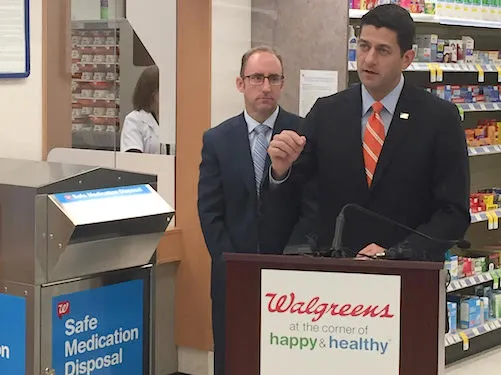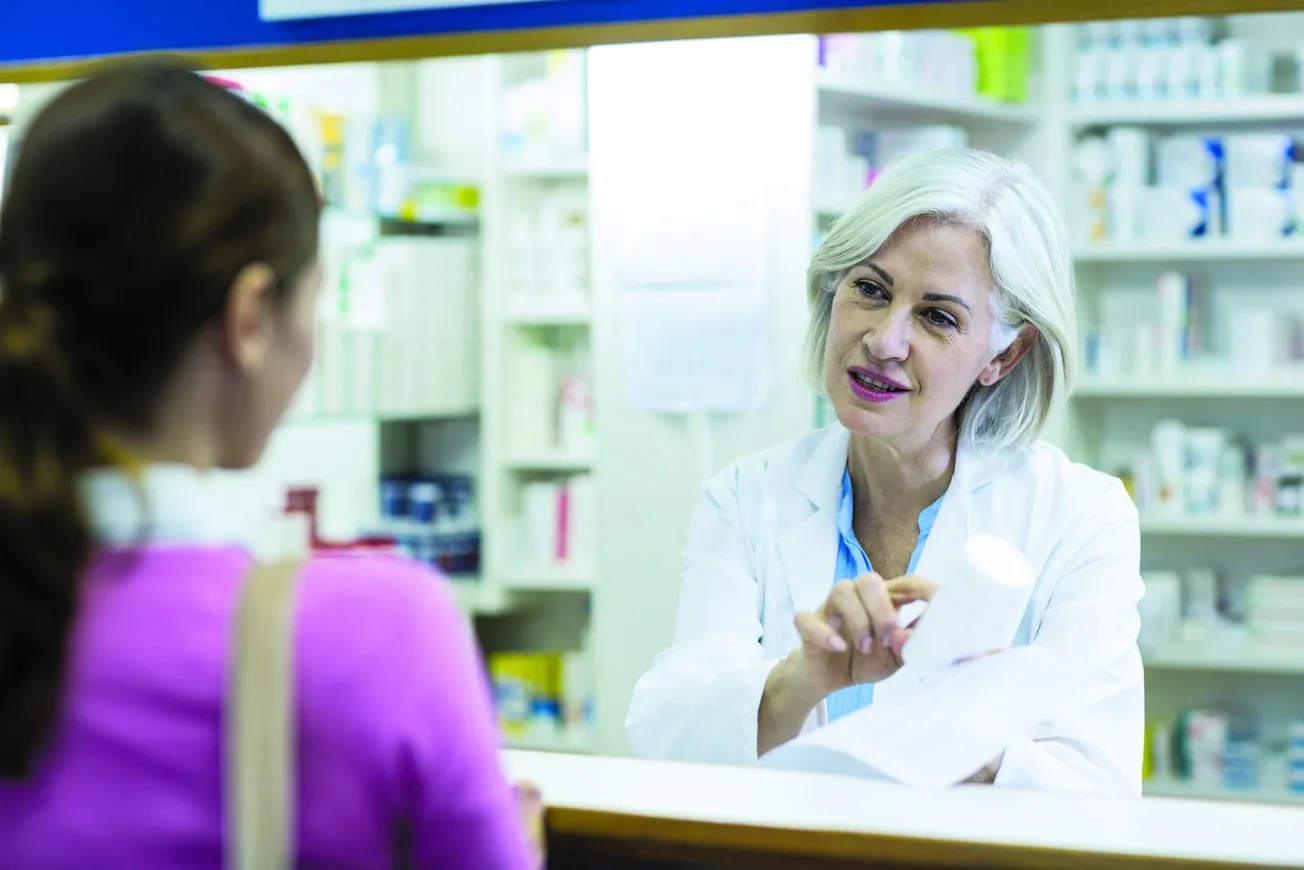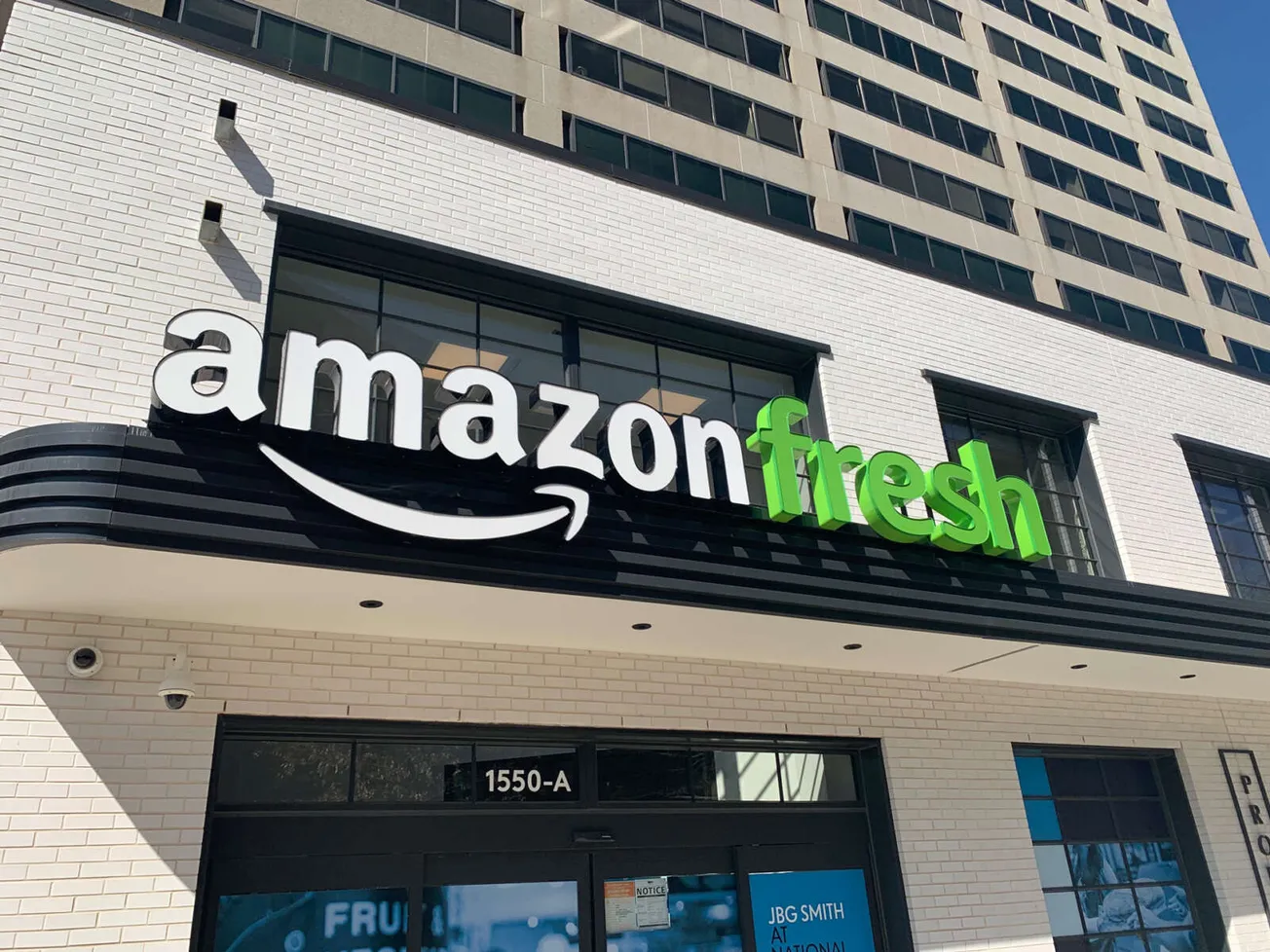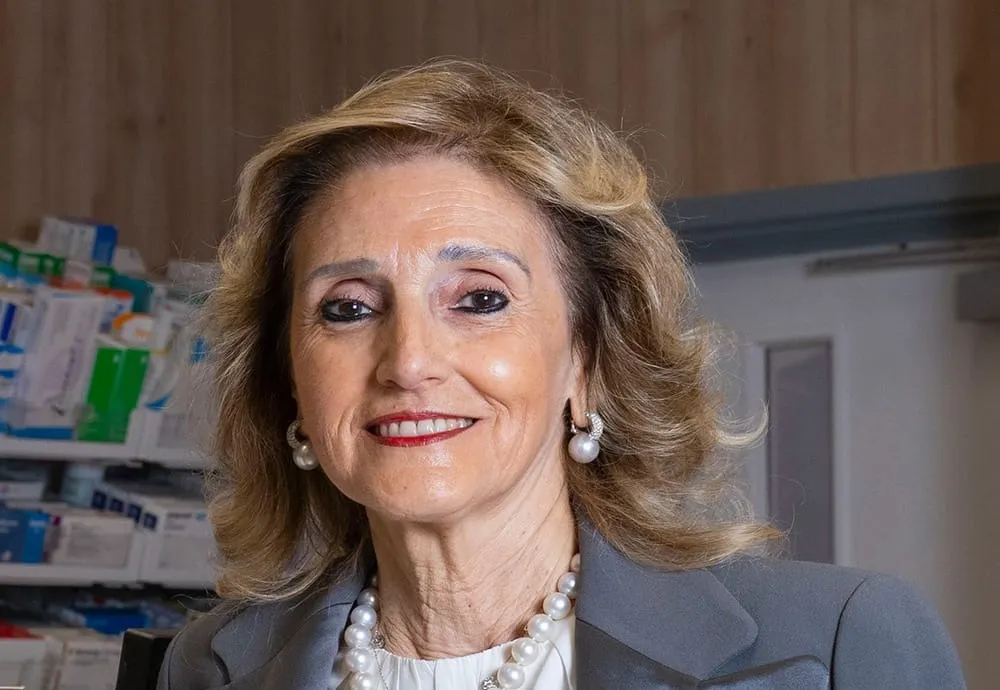JANESVILLE, Wis. — House Speaker Paul Ryan (R., Wis.) visited a Walgreens store in Wisconsin to mark the drug chain’s first store in the state with a drug take-back kiosk.
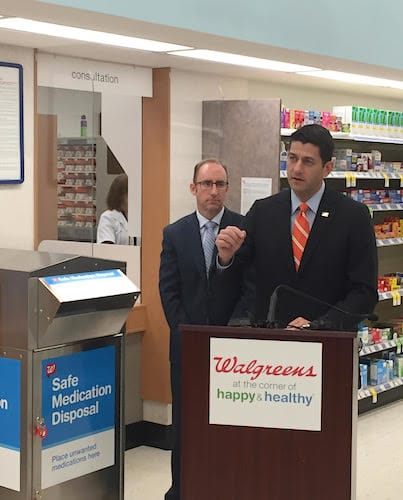
House Speaker Paul Ryan (podium) and Walgreens’ Richard Ashworth at the chain’s store in Janesville, Wis.
Ryan attended an event on Monday at Walgreens’ store in Janesville, Wis. The safe medication disposal kiosk installation in Wisconsin is expected to be completed by the end of August, the company said.
Walgreens has installed safe medication disposal kiosks at 288 pharmacies across 21 states and Washington D.C. The retailer is now more than halfway toward its goal, announced in February, of installing the kiosks at 500 locations around the country. The installation in Wisconsin is expected to be statewide by the end of August.
The kiosks provide a safe and convenient way to dispose of unwanted, unused or expired prescriptions, including controlled substances, and over-the-counter medications, at no cost. As part of Walgreens’ drug take-back program, the kiosks are accessible year-round to help reduce the misuse of medications and the rise in overdose deaths.
“Walgreens has taken an important first step to curb the misuse of medications throughout the country and continues to make progress in offering easy and convenient medication disposal,” Richard Ashworth, president of pharmacy and retail operations, said in a statement. “Everyone has a role to play in minimizing prescription drug abuse, and we are committed to being part of a comprehensive solution to reverse this epidemic.”
The kiosks are open during regular pharmacy hours (24 hours a day at most locations) and offer one of the best ways to ensure medications are not accidentally used or intentionally misused by someone else.
Walgreens also has helped curb the rise in opioid overdose deaths by making naloxone, a lifesaving opioid antidote, available without requiring a prescription in more than 2,600 pharmacies across 14 states.
On Aug. 1, Walgreens will begin offering naloxone without requiring a prescription in North Carolina and Wisconsin as the company continues toward its goal of offering naloxone without a prescription at more than 7,000 of its nearly 8,200 pharmacies. In states where a prescription is required, Walgreens is available and eager to work with regulators to help update rules to allow for dispensing of naloxone without a prescription.
Naloxone can be used in the event of an overdose to reverse the effects of heroin or other opioid drugs, and is administered by injection or nasal spray.
When naloxone is dispensed, instructions are provided on how to administer the medication, including calling 911.
Drug abuse continues to be a public health and safety risk. More Americans die every day from drug overdoses than from motor vehicle crashes, the Office of National Drug Control Policy reported. According to the Substance Abuse and Mental Health Services Administration’s 2014 National Survey on Drug Use and Health, almost 15 million Americans misused a prescription drug in 2014, and that same year the Centers for Disease Control and Prevention (CDC) reported a national total of 47,055 drug overdose deaths, which include deaths from prescription and illicit drugs. That is a 6.5% increase from 2013 and a 140% increase since 2000.
In addition to offering a year-round solution for individuals to dispose of their medications, Walgreens continues to participate in DEA sponsored National Prescription Drug Take Back Days, serving as a collection point in communities for law enforcement to collect unwanted, unused or expired medications for safe disposal. The company is also collaborating with the American Pharmacists Association Institute on Alcoholism and Drug Dependencies to continue to offer a substance abuse education program for pharmacists and student pharmacists.

